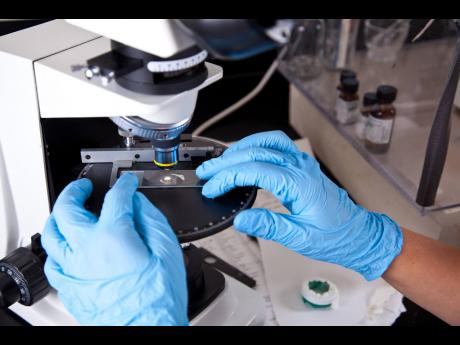Persons shun unaccredited labs … Facilities now rushing to be certified
Several medical laboratories across Jamaica are busy ensuring that they take the necessary steps to get accredited, as they are now losing money because of customers’ refusal to do business with them.
On June 16, The Sunday Gleaner, in an article titled ‘Lab rats’, exposed the risks many Jamaicans faced, as only five of more than 100 labs in the island were accredited to practise.
The Jamaica National Agency for Accreditation (JANAAC) noted that they were receiving reports from members of the public that they had to redo lab tests, as they were getting conflicting reports from labs that were not accredited. Not only did this pose a dilemma, but the process was also costly.
Chief executive officer of JANAAC, Sharonmae Shirley, said since the exposé, she has received calls from various players in the industry, which showed that the message was getting across to people and the objective was being achieved.
“We have people calling about accreditation and those who were sleeping have woken up, the article called them to action and advised the public,” Shirley told The Sunday Gleaner.
“The ones that are not accredited have called us, which is a good move for Jamaica, because the aim is to get as many labs accredited as possible so that we can safeguard the public; that’s the bottom line. People need to know and be able to make an informed choice.”
The five accredited laboratories in Jamaica are the National Public Health Lab, The University of the West Indies Microbiology Laboratory, The University of the West Indies Department of Pathology, Microlabs, and Biomedical Caledonia Lab.
“The labs who have called us have indicated that their customers have called them asking if they are accredited, and when they say they are not, or even those who say they are in the process, the customers say ‘it’s not good enough, we will choose an accredited lab’,” said Shirley.
“The people have been speaking, and not only the clients themselves but their doctors have been calling the labs and asking, ‘are you accredited’? And if they say no, they say ‘well, we can’t refer our patients to you any more’, so that is pushing them now to get their organisations in line, which is good.”
NOT TEDIOUS
Shirley said the process of getting accreditation was not as tedious as one might make it out to be.
“The process can be completed from start to finish in four months. We have several medical labs that have completed their process in four months, and more of the overseas ones do it faster,” she stated.
Director of the Standards and Regulation Division in the Ministry of Health, Cynthia Lewis Graham, said she is not aware of any complaints from persons that have been receiving conflicting results from unaccredited facilities.
“None has been reported to my desk, and neither through the complaints management system operated in the Investigation and Enforcement Unit,” said Lewis Graham.
It is not mandatory in Jamaica for medical labs to get accreditation. The Health Facilities (Medical Laboratories) Act of 2005, which would mandate accreditation, is yet to be passed into law.
“The Health Facilities (Medical Laboratories) Act has been promulgated; however, the effective date has not been gazetted to allow for the finalisation of the requisite regulations to operationalise its function,” said Lewis Graham.
MINISTRY INSPECTIONS
Responding to reports that the inspection that the ministry conducts of medical laboratories are not comparable to the inspections that an accredited body undertakes, she said that the checks carried out by the ministry are done in response to requests from laboratories seeking provider status, but routine assessments are not done.
“The inspections carried out by the ministry are a collaborative effort by the Standards and Regulations Division, The National Laboratory Services and the Health Facilities Maintenance Unit, and are guided by the ISO 15189 Standard, Medical Laboratories Requirements for Quality and Competence. The objectives of the inspection are to assess the capacity of the lab to adequately provide services and to ensure that practices and procedures conducted are in keeping with minimum requirements,” said Lewis Graham.
The health ministry official added that when a lab is found to be operating outside of the requirements, the medical director of the lab is so advised and a letter is generated with a list of recommendations to be addressed within a specified timeline, following which the facility is revisited.
“If non-conformances are not addressed, the facility can be ordered closed under the Public Health Act and the Quarantine Act,” said Lewis Graham.


